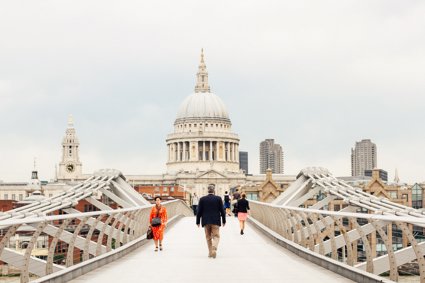
Setting the scene
What sources of evidence can be used to investigate local history?
Key questions
How do the terms ‘local' and ‘history' differ depending on the context?
What sources of evidence can be used to investigate local history?
How do the terms ‘local' and ‘history' differ depending on the context?
It is useful to define the terms local and history at the start of the unit so that pupils can think about the variable nature of these terms and the parameters for this unit. They should also be encouraged to think about why these parameters have been chosen.
The local nature of the unit will depend on the settlement in which the school is based. For example, if located in a city or large town it might be appropriate to focus the study on part or the whole settlement. However, if the school is located in a small town or large village it might be more appropriate to expand the locality to include other villages and small towns in the local area. The definition of local may also change throughout the unit. When investigating the locality during the lesson on fieldwork, it is probably best for pupils to engage with a small area, perhaps one or two kilometres in diameter. However, for other activities, such as that on landscape archaeology, it is easy and probably more appropriate, to investigate a much larger area of several tens of kilometers. This fluid definition of local is worth engaging with before moving on to looking at what is meant by history.
The definition of history in this context is mainly a practical one. Whilst a large majority of settlements have their origins in Anglo-Saxon Britain, the vast majority of information available is from the past 200 years. Having said this, it is worth highlighting that the term history may well change, as the term local does, throughout the unit. For example, when investigating the names of settlements and landscape archaeology, we are probably looking at evidence hundreds or even thousands of years old. However, when looking at the lesson on education this is likely to focus on much more recent history - depending on the school maybe even only a couple of years.
What sources of evidence can be used to investigate local history?
This discussion, particularly of the definition of history, leads nicely on to an examination of the different sources of evidence which can be used to investigate local history. Pupils should be encouraged to think critically about the different sources of evidence to assess their usefulness. When were they produced? What was their purpose? Are they factual accounts or people's opinions? How much information do they provide? How accurate is it likely to be? It is likely that pupils may have come across such critical questions within their study of History. Also, with the growth of the internet, many documents and pieces of information can be accessed easily. However, it is worth remembering that other sources of evidence, whilst harder to access, may be very valuable and provide vast amounts of data.
The following links may be useful as sources of information:
-
The Vision of Britain website provides the information for the main activity How has our local area been described in the past?
-
The BBC website on local history gives lots of useful information about local history in general but also about sources of evidence
Starter
Local History?
What do we mean by local history? First we have to decide on a definition for the terms local and history. Discuss your thoughts about the meanings of these words with your partner and then feed back to the rest of the class.
The local history PowerPoint presentation will give you some further ideas and introduce you to some of the themes you will be investigating during this unit.
Main Activity
How can we find out about our local history?
The interactive activity will get you thinking about the sources of evidence we can use to find out about our local history. Which three sources would you choose to put into your local history toolkit?
Give reasons for your choices and explain what information you think your sources of evidence would provide.
If you have got time, pick one source that you definitely would not use for your investigation and explain why.
How has our local area been described in the past?
Your teacher will provide you with a historical document which tells you what your local area was like in the past. Use three colours to highlight the text:
-
Red to highlight any facts or figures
-
Green to highlight any descriptions of the physical geography of the area
-
Blue to highlight any descriptions of the human geography of the area
Around the outside of the document, write some notes about how you think your local area has changed since the historical description was written.
The PowerPoint presentation will give you more detailed instructions for this task, and show you an example to help you get started.
Plenary
Crossword time
Have a go at the crossword activity which recaps some of the main sources of evidence you have been learning about during this lesson. It also introduces some of the things you will be studying in future lessons, to give you a head start.
If you get stuck, ask your teacher for some extra clues.
File nameFiles
File type
Size
Download
Our Place In History Lesson 1 How Has Our Local Area Been Described In The Past? Teachers' Notes
.doc
863 KB
Our Place In History Lesson 1 How Has Our Local Area Been Described In The Past? Teachers' Notes (1)
588 KB